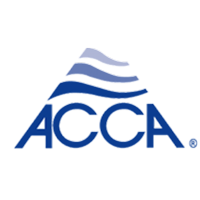
Did you perform a double take when you checked your last energy bill? Even though high energy bills can be the end result of extreme weather conditions, consistently high bills can quickly suggest an inefficient HVAC system or your home is misusing energy by other means, such as drafty windows or poor insulation.
One of the easiest ways to identify whether your home is using too much energy is by calling a home service specialist to perform a home energy audit, also called a home energy assessment. Keep reading to find out more about home energy audits, including what they are and their benefits.
What Is a Home Energy Audit?
An energy audit is a comprehensive inspection of how much energy your home uses up and whether – and where – your home might be losing or wasting energy. An inspector will take a look at previous energy bills while completing an energy audit to figure out where energy is being wasted and how much.
The overall goal of an energy audit is to help homeowners save money on their energy bills by suggesting energy-efficient renovations, which might include replacing your existing HVAC system, installing new insulation, sealing up leaks, or replacing old windows.
During the energy assessment, the auditor performs an inspection of the outside and inside of your home. The auditor will perform a blower door test on doorways, windows and fireplaces to figure out if there are air leaks in your home. They’ll also check your home’s HVAC system, as well as the ductwork, the water heater, and the insulation in your attic. Comprehensive assessments may also include inspecting your current lighting system.
Benefits of a Home Energy Audit
It can be hard for the average homeowner to know for sure how efficient their home is compared to other similar homes in their neighborhood. However, lots of energy companies often offer information about where your home is ranked in comparison to similar homes and whether it’s more efficient, about average, or inefficient compared to your neighbors’ homes. This can be a great starting point to determine if you need an energy audit scheduled.
Several of the benefits of a home energy audit include:
Understanding How Efficient Your Home Is
It’s good to learn more about how efficient your home is and where you’re consuming the most energy. For example, if your ducts are leaking air, it can lead to a large increase in your energy bills and increased wear and tear on your HVAC system as it has to work longer to completely heat or cool your home.
Making Energy-Efficient Upgrades
An energy audit will outline where you need to make energy-efficient changes to save on energy and decrease utility bills. This might include replacing worn weatherstripping or buying a new energy-efficient furnace.
Improving Health and Safety
Enabling air to seep into your home via doors and windows, or due to a lack of insulation can cause unwanted moisture to appear, which can negatively influence your home’s humidity levels or lead to mold. This can lead to health problems, especially for people dealing with asthma or allergies.
Increasing Your Home’s Retail Value
Energy-efficient homes are sought after by homebuyers. You can sell your home sooner or for more money by showing potential buyers that it’s energy efficient.
How to Perform an Energy Audit of Your Home
Although performing an energy audit by yourself may not be as thorough as choosing a professional, it’ll give you a broad understanding of how energy efficient your home is. If you don’t discover any issues during the DIY test, then you likely don’t need to hire a professional. Follow this step-by-step checklist:
- Review your HVAC system. Leaky ducts can lose nearly 20% of conditioned air, contributing to more expensive energy bills and increased strain on HVAC equipment. If you notice leaks, use duct tape to eliminate them. If your HVAC equipment is old and wearing down, upgrading to a new system can save you a considerable amount on your energy bills. In some cases, it is better to contact a reputable HVAC company to inspect your system.
- Watch for signs of air leaks. Air leaks on average can raise your energy bills by 10 to 20%. Inside, look for air leaks in areas where you can find a draft, including along the edge of flooring and close to baseboards and electrical outlets. Outside, you can inspect for air leaks along the home’s foundation, siding and mortar. Plug, caulk or seal any air leaks to save money.
- Inspect insulation. If your home is older, it could mean your insulation is too. If you can see the joists, you likely need more insulation.
- Check the ventilation. Check that all of your kitchen and bathroom exhaust fans are working properly, and check for evidence of rot or moisture.
Contact Solar Air Inc. for a Professional Energy Audit
If you want professional help figuring out how energy efficient your heating and cooling equipment is, contact the HVAC pros at Solar Air Inc. today. We’ve proudly serviced the residents of Fort Lauderdale with quality home services for a long time. Contact us today to request an appointment.



